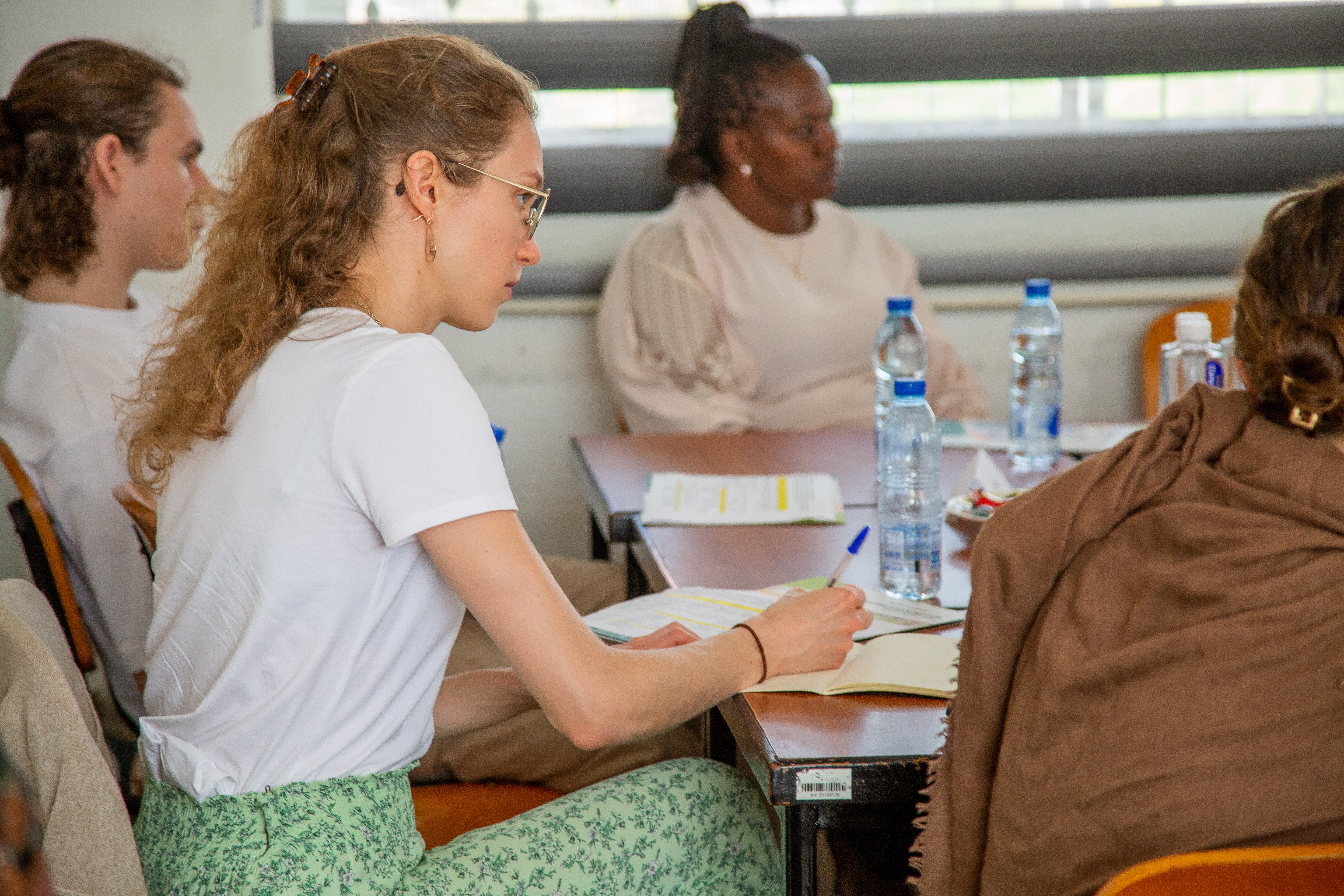
CLOSED: Training on equitable health planning

From January 15-24, the Ifakara Health Institute, in conjunction with the Swiss Tropical and Public Health Institute, hosted a 9-day training program titled "Planning for Health Development – Tanzania in Context" in Kingani, Bagamoyo.
Renowned Epidemiologist to lead
The primary objective of this training is to enhance skills in health planning, focusing on reducing mortality rates and promoting equity in areas with limited resources. Prof. Dr. Marcel Tanner, a renowned Epidemiologist and the current President of the Swiss Academy of Sciences, will lead the program. Dr. Honorati Masanja, Ifakara’s Executive Director, will also facilitate some sessions on health planning in the Tanzanian context.
Participants and facilitators
The participants comprise members of the Council Health Management teams from Bagamoyo, Kilombero, Ifakara, and Mlimba, alongside students from diverse disciplines in Switzerland. Additionally, members from the Ministry of Health and the President's Office, Regional Administration, and Local Government Tanzania (PO-RALG) are included.
The training's objective is to provide them with knowledge in equitable health planning for the reduction of mortality and morbidity. Swiss participants will specifically gain insights into resource distribution within resource-limited settings.
Other facilitators included Dr. Mirko Winkler, a Professor in Urban Public Health at the University of Basel; Dr. Kafuruki Shubis, the Head of Teaching/Training at IHI; Dr. Hassan Mshinda, former Director General of Tanzania Commission for Science & Technology and Senior Consultant to the Fondation Botnar; and Dr. Deodatus Mtasiwa, former Permanent Secretary at the Ministry of Health, Tanzania.
Day 1 kicks off
Drs. Masanja and Shubis extended a warm welcome to partners and participants at Ifakara’s Training Centre in Bagamoyo on Monday, January 15th 2023, providing an introduction to the course. The conversation then shifted to global health developments, skillfully guided by Drs. Tanner and Winkler, exploring the latest trends and advancements in the field.
To set a robust foundation for the course, Drs. Masanja and Mtasiwa offered a comprehensive introduction to Tanzania and its complex health and social sector.
Day 2: Participants tour Bagamoyo
Under the guidance of Dr. Kafuruki Shubis, Head of Training and Capacity Building at Ifakara, participants in the health planning training explored Bagamoyo, engaging with local district authorities and visiting the district hospital.
The sessions revolved around health and well-being, with a specific focus on the socio-economic determinants crucial for informed decision-making. Drs. Sally Mtenga and Irene Moshi from Ifakara are slated to give presentations, alongside contributions from Drs. Tanner, Winkler, and Mtasiwa.
The day concluded with a discussion session, comparing the health situations in Tanzania and Switzerland facilitated by experts from both countries.
Day 3: Participants get hands-on
Drs. Tanner and Winkler introduced participants to the health planning module and the context of health and ecosystems. Participants then took their first shot at health planning and submitted their plans for review.
Day 4: Health planning in the digital age
Having assessed their achievements from the previous day, participants redirected their focus to the digital age's impact on health systems and insurance in Tanzania.
Discussions throughout the day delved into the convergence of healthcare and technology, examining how digital advancements could improve accessibility and efficiency within a country's healthcare sector.
The day concluded with an engaging evening panel titled "Digitalization for health and well-being," featuring insightful case studies that highlighted the transformative potential of incorporating technology into healthcare practices.
Day 5: Round two of health planning
After evaluating the results of their initial health planning, participants dove into round two with increased insights and preparation. They focused on exploring key information and data sources for planning, followed by a panel discussion on the "Public-private mix of health and social services” to conclude the day.
Day 6: From planning health to exploring history
Participants delved into crucial topics ranging from the intricacies of decentralized systems to the prioritization of healthcare services under the guidance of esteemed experts such as Prof. Tanner, Dr. Moshi, and Dr. Mtasiwa.
The discussions not only provided valuable insights into the planning of health initiatives but also shed light on the utilization of health services within various systems.
Following the intellectually stimulating sessions, participants took a break to explore the rich history of Bagamoyo Town.
Day 7: Into the wild
Participants took a break to explore Bagamoyo's rural areas and Saadani National Park. Immersing themselves in local culture and wildlife encounters, the day offered a refreshing blend of adventure and insights.
Day 8: What we learn from Tanzania
Participants engaged in a thought-provoking exploration of the lessons derived from Tanzania, uncovering their potential implications for European health and social systems. The discussion, spearheaded by Prof. Tanner, offered a valuable exchange of insights among participants.
This collaborative effort underscores the importance of cross-cultural learning and the potential for shared knowledge to drive positive change in global health practices.
Day 9: Final discussions on health planning
The 9-day cross-cultural learning journey ended with insightful final discussions on health planning for equity and reduced mortality. Participants, after meticulously analyzing health systems in diverse Tanzanian villages, delivered impactful group presentations.
What was planned
The 9-day curriculum involved a district tour exploring local authorities and the District Hospital. Participants engaged in discussions covering topics like health and well-being, determinants of health, social and eco systems, as well as health systems and insurances in the age of digitalization in Tanzania.
The program also included insights into information and data sources for planning and more. A practical component involved participants taking attempts at health planning, providing hands-on experience within the program.
In the end, the agenda aimed to equip participants with valuable skills in equitable health planning and development while also encouraging cross-cultural learning between Tanzanian and Swiss perspectives.
